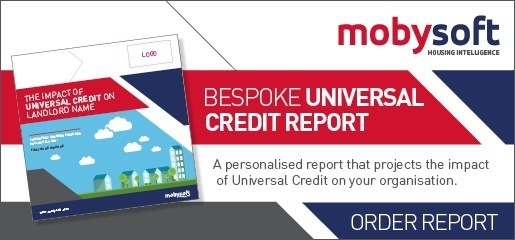Social landlords have never needed to create efficiencies and protect revenues as they do now. The 1% rent cut, ongoing welfare and tenancy reform has created black holes and blown apart business plans.
Welfare reform, and in particular Universal Credit, are challenging resources like never before. But are landlords in danger of ignoring the risk of Universal Credit? Put simply their current processes, systems and teams will not be able to cope with these changes. The rent that landlords will need to collect will double as tenants switch to UC from Housing Benefit. What’s more Universal Credit cases cost 450% (1) more than those on legacy benefits, according to research from City West Housing and Bolton at Home, and 89% (2) of UC tenants are in arrears according to the National Federation of ALMOs. With this in mind landlords need to be quadrupling the size of income teams to cope with this change.
But when many are restructuring and making cuts it is just not possible. One option, which many are choosing, is to create efficiencies by investing in best of breed technology solutions.
Many landlords have invested in RentSense precisely because it is creating tangible efficiencies, asra Housing Group reduced their arrears by £1.65m.
Recently, there has been a surge of deployments of RentSense, for many this has been prompted by the on-going roll out of Universal Credit and welfare reform. Northampton Partnership Homes were keen to mitigate the risk, as Peter Haytack, Head of Income and Rent Accounting, explains.
“It was clear that through Universal Credit the numbers of rent cases requiring attention would rise and also many of these would require more intensive levels of management. We needed to build capacity within the team to be able to undertake this additional work and RentSense provides an opportunity to make efficiency gains in our day to day operation.”
Liverpool Mutual Homes also cited Universal Credit as a key reason for deploying RentSense, as Garry Croll, Assistant Director of Housing, explains:
“The proposed new raft of welfare reforms underpinned the decision to invest in the system (RentSense).”
Maggie Cornall, Director of Operations at Blackpool Coastal Housing, explained that their “Income stream is put at risk by no longer having the comfort of direct payments from the Housing Benefit Service,” because of Universal Credit, which prompted their investment in RentSense.
However, there are many landlords waiting to see what will happen with Universal Credit and thinking that they can mitigate it with their current systems and headcount, when research contradicts this belief. Now is the time to update systems and processes so organisations can cope with this ongoing welfare reform.
1. Average of Bolton at Home (ALMO for Bolton Council) & City West Housing Trust research
2. National Federation of ALMOs Research

